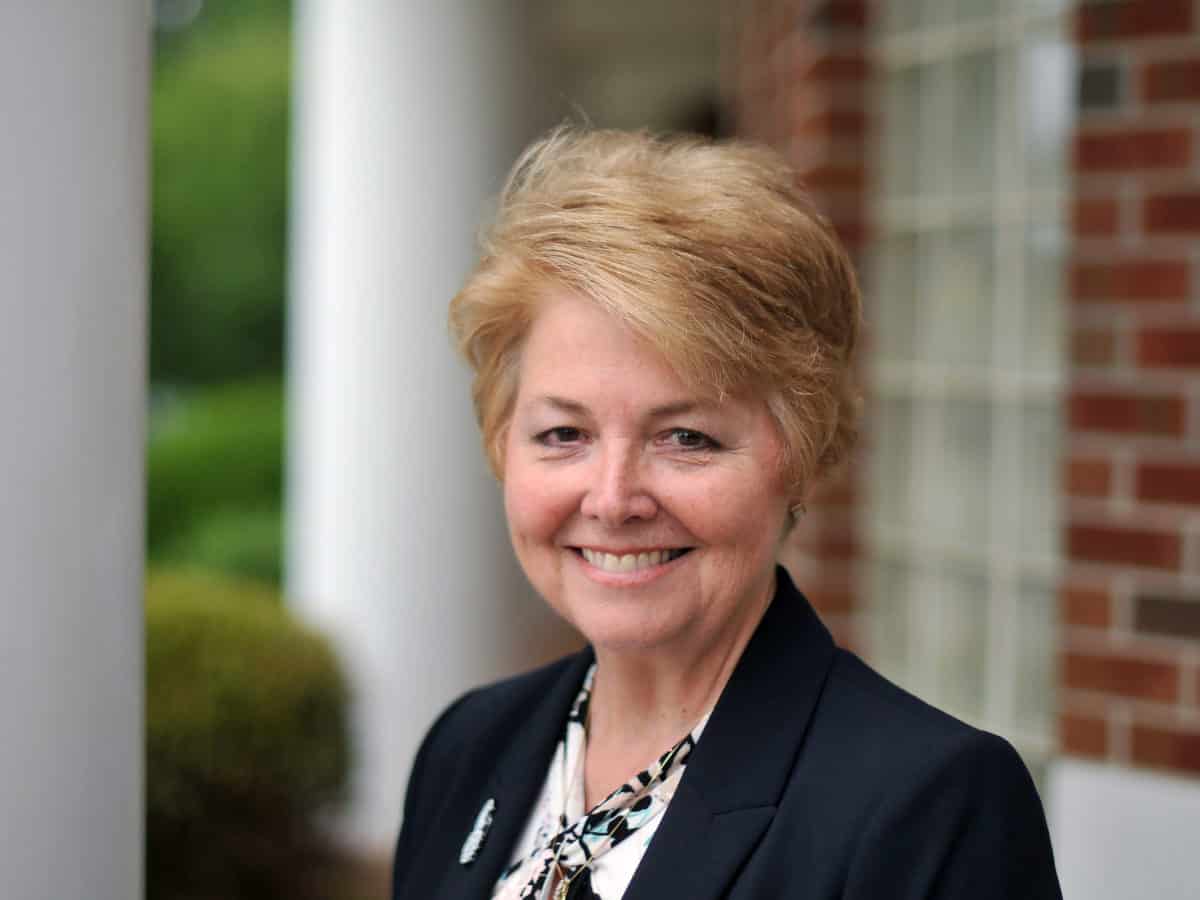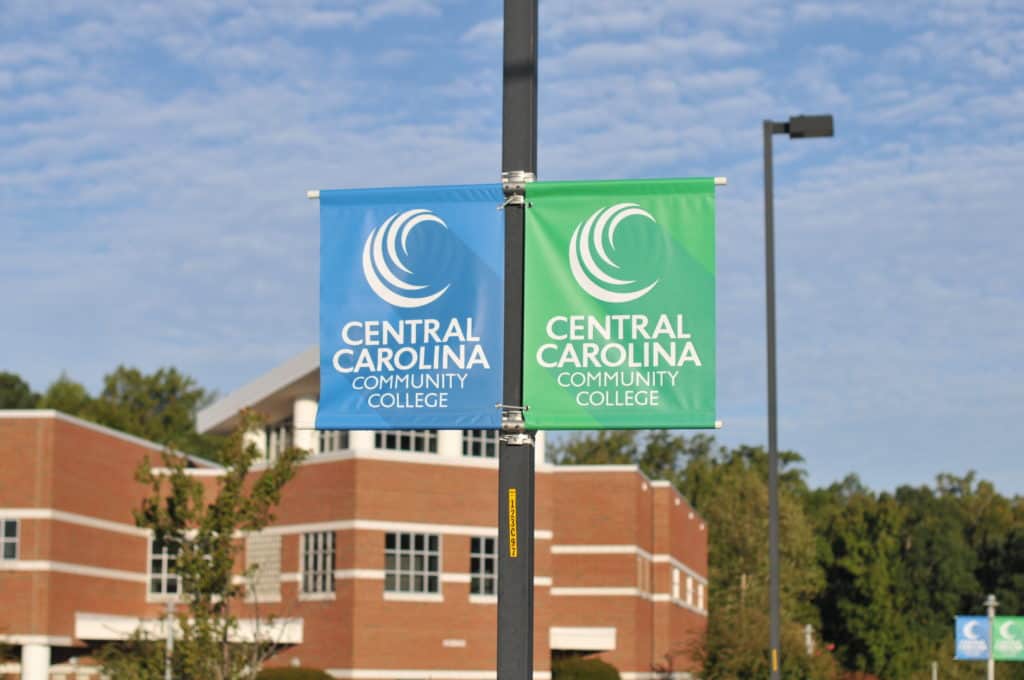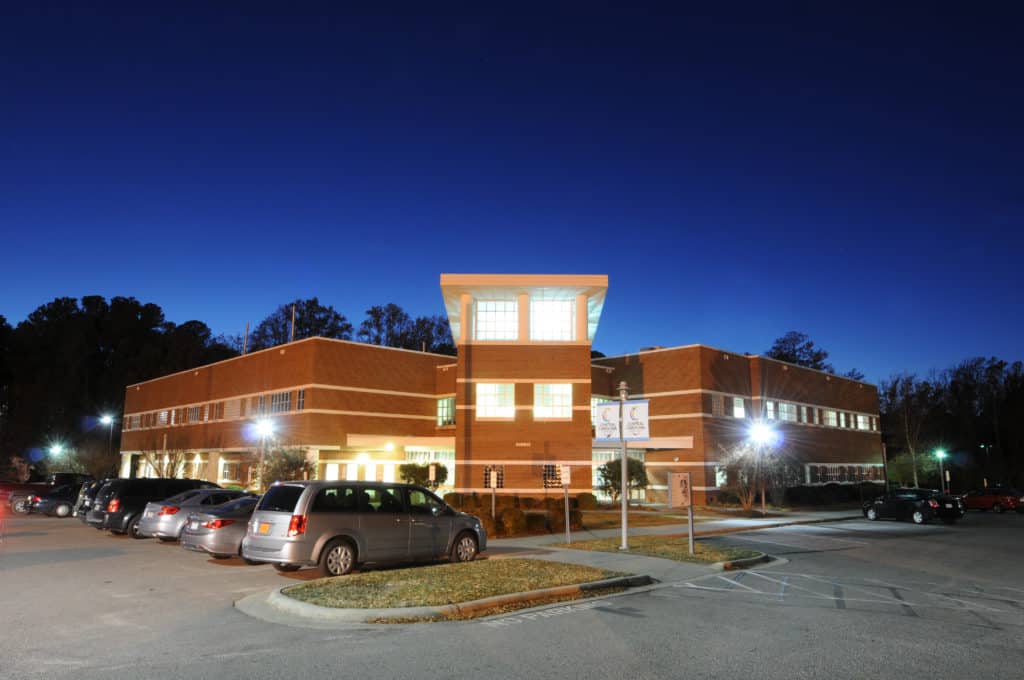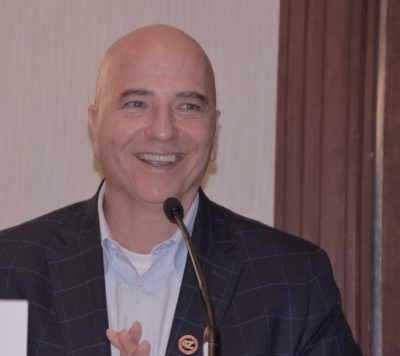
When Lisa Chapman became president of Central Carolina Community College in the spring of 2019, she didn’t need a tour of Lee County, Sanford, or the campus to know where she was heading. While she had worked on the state level for the NC Community College system for the previous five years, most of her career had been spent at Central Carolina, where she had last served as executive vice president and chief academic officer.
As Chapman approaches her one-year anniversary, I had the opportunity to visit her college’s Lee County campus. On a dreary Monday evening, at the end of a long day, Chapman was full of energy when she walked into her office. Her affection for her college was clear from the moment we began to reflect on the life experiences that brought her to this moment.
In her previous 27-year stint at Central Carolina, Chapman played a variety of roles. She had begun her career as a biologist in Research Triangle Park, but even then she lived in Lee County. When Central Carolina recruited her as a faculty member, she could work closer to home — but she also quickly discovered a love for the art of teaching. “I fell in love with our students,” she recalled with a smile. “I probably learned much more from (the students) than I’m certain they learned from me at the beginning of my career.”

Her career at Central Carolina began in earnest as the college itself began to change. It had been founded as Lee County Industrial Education Center in August 1961, but beginning in the 1980’s the institution was changing to meet student and industry needs. Over the course of her tenure in a variety of roles, the college launched programs focused on industry needs, began to focus on serving students who hoped to transfer to four-year universities, and in time launched an early college.
Over the last three decades nearly all community colleges across North Carolina increasingly began to serve as a launchpad for students who wished to transfer to four-year colleges. This led to an effort in 2014 to look at the comprehensive articulation agreement between four-year colleges and the community college system, and Chapman served as the co-chair on this statewide effort. She told us the work on the articulation agreement gave her a new prism, allowing her “to see things at the state level, and also to have some state level exposure, which then provided the opportunity for me to serve as the chief academic officer for the system.”
From Sanford to Raleigh
Chapman’s work as co-chair also led her to an opportunity to serve as chief academic officer for the NC Community College system. From there she could see what the other 57 institutions beyond Central Carolina were doing and understand the governance structure, the budgetary process, and the ripple effects of state-level policy on colleges across the state. She also could better understand how North Carolina’s system is situated.
“I was able to see a lot of the trends happening across the nation,” she recalled “This allowed me to understand how North Carolina is very unique in terms of our comprehensive approach to education, as well as the uniqueness of a system that has 58 local boards making decisions. All of this is very, very different than you find in most other states.”
Throughout Chapman’s tenure in the system office, however, she remained rooted in Lee County, where she could watch Central Carolina’s continued growth under the leadership of president Bud Marchant. While she enjoyed the state-level work, she knew that she wanted to return to a college one day.
“I was able to watch folks engage with the students and support them chasing their dreams,” she said. “And hearing how those individuals, faculty and staff and administrators alike, make differences in the lives of students is something that I had missed deeply.”
So when Marchant announced his retirement, Chapman jumped at the opportunity to apply for the role.
As great as I thought it was
Her tenure as president has very much been a homecoming.
When asked for some of her takeaways from her first year, Chapman broke into a broad smile. “I learned quickly that this college is as great as I thought it was,” she said.
One essential role of community colleges, in Chapman’s view, is its impact on daily lives in the community. She said that in recent months, while taking her mother to medical appointments, she has met countless graduates of Central Carolina who tell her the role the college has played in giving them an opportunity to build a productive life in the community they love. She says this is a sign of success for the college.
Another indicator of success for a community college is whether it is part of the conversation around economic development in its community. “The talent pipeline locally is critically important in the decision making for industries who are looking to expand or relocate,” she told us. “And we’re critically important to that talent pipeline. The quality of instruction we provide and the strength of our partnership with our sister community colleges in the region, our local K-12 partners, and our other workforce development partners matters deeply.”

Persistent challenges
As Chapman looks ahead, she is confident Central Carolina will continue to play that role.
But she is also clear-headed about the challenges that a rural college will face. Many of the most important services rural colleges offer students require funding that falls outside the state budget, so their success at offering comprehensive student success services will require continued fundraising.
Sign up for Awake58, our newsletter on all things community college.
Faculty members are on the frontlines of identifying student needs — one of the many roles they play beyond educating students. And faculty pay is a clear challenge for Central Carolina, as it is for all community colleges. Chapman was clear on the need for it to be addressed. “Money doesn’t solve everything, but if you’re consistently overlooked, it is difficult to feel that people see the value in what you’re doing,’ she told us. “So a challenge for my administration is to make sure people know how valuable they are even in light of the fact that paying isn’t necessarily being addressed at the state level.”
The opportunity for Central Carolina under Chapman’s leadership might be summed up by the term “value.” The college seeks to provide value to students throughout their educational experience, but Chapman said she also hopes both students and staff feel valued.
We closed our conversation with a reflection from Chapman on her experience volunteering at their food pantry. It was a few days into the month when she spoke with a student who was visiting the pantry. “The student told me that sometimes it’s just tough to get through the end of the month,” she recalled “That conversation happened at the beginning of the month… So for her, you know, she’d already taken care of the bills that needed to be covered, and then she’s got to figure out how to make it for the rest of the month. That’s real. That’s every day for our students. (Real life) provides persistent challenges.”
The students Chapman meets every day as she walks across campus are in some cases the children of people she taught two-plus decades ago. They are her neighbors, the people who take care of her mother, and family members of folks she has known for decades. Becoming president of Central Carolina was a chance for Chapman to continue to give back to the community that has shaped her life. It is clearly a task she doesn’t take lightly.
Recommended reading



